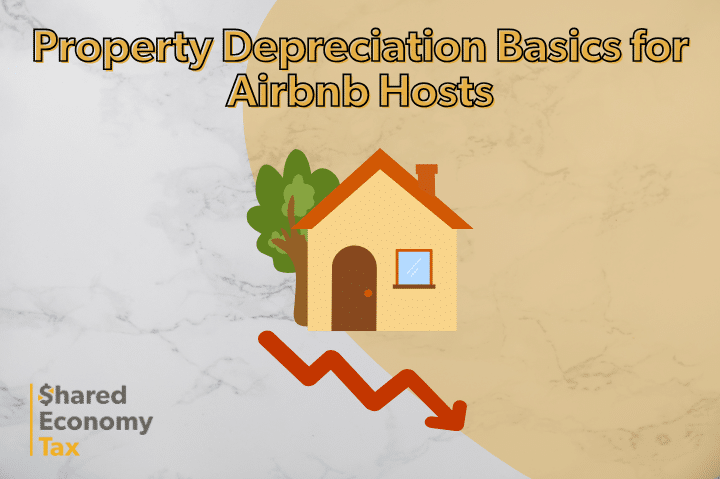
If you own the property you host on Airbnb, understanding how depreciation works could unlock one of the most powerful tax-saving tools available to short-term rental investors. Depreciation allows you to write off a portion of your property’s value over time, reducing your taxable income—even if the property is increasing in value.
This post covers how depreciation works, when to claim it, how to report it properly, and what it means for your future tax liability.
What Is Depreciation?
Depreciation is the process of deducting the cost of a tangible asset—like a home—over its useful life. The IRS assumes residential rental property has a useful life of 27.5 years. That means each year, you can deduct about 3.636% of the depreciable value of the property.
You can depreciate a property used for Airbnb if:
- You own it (not rent or lease it).
- It has a definable useful life (i.e., it will wear out or become obsolete).
- You use it in a business or income-producing activity.
Land is not depreciable, but the structure, improvements, and certain assets inside the home are.
When Does Depreciation Start and Stop?
When your property is ready and available for rent, you can begin taking advantage of depreciation. This could be the date you first list it on Airbnb, not necessarily the first booking date.
It ends when:
- You sell the property.
- You convert it to personal use only.
- It’s permanently taken off the Airbnb market.
You can also continue depreciating the property while it’s idle, as long as it’s still available for rent and not permanently retired from service.
Example: How to Calculate Depreciation for Airbnb
Let’s say you bought a property for $500,000. The land is valued at $100,000, and the building at $400,000.
Here’s how the math works:
- Depreciable basis: $400,000 (building only)
- Annual depreciation: $400,000 ÷ 27.5 = $14,545
- If you only rent the property half the year, you can deduct 50%: $7,273
That deduction can significantly reduce your Airbnb income tax liability.
Where to Report Depreciation
Most Airbnb hosts who actively manage their property report income and expenses on Schedule C (if treated as a business). Depreciation is detailed on IRS Form 4562, Depreciation and Amortization.
Keep track of every year’s Form 4562. This cumulative record is essential for calculating depreciation recapture when you eventually sell the property.
Can I Deduct Bonus Depreciation or Use Section 179?
Bonus depreciation was a major tax benefit under the Tax Cuts and Jobs Act, allowing businesses to write off 100% of eligible property costs in the first year. But this benefit is being phased out. In 2023, bonus depreciation was 80%. In 2024, it’s 60%. In 2025, it drops to 40%.
Section 179 is another deduction that lets you fully expense eligible property in year one—but it generally can’t be used for rental properties unless the asset is used in an active business. This might include items like appliances or furnishings used exclusively for business purposes.
Safe Harbor for Small Landlords: Immediate Deduction of Repairs
If your Airbnb qualifies under the IRS’s safe harbor rule, you may deduct certain repairs and improvements in full instead of depreciating them. To qualify, your property must have an unadjusted basis of $1 million or less. The total amount of your expenses must not exceed $10,000 or 2% of the unadjusted basis of the property on a per building basis.
Additionally, your annual gross receipts must not exceed $10 million during the three preceding tax years. This provision allows eligible landlords to deduct routine maintenance and small improvements without capitalizing them, streamlining their tax filings.
What You Can’t Depreciate
You cannot depreciate the cost of land because it generally does not wear out or get used up. Additionally, you cannot depreciate property that is used solely for personal purposes or that is placed in service and taken out of service within the same year.
Certain luxury or structural improvements, like swimming pools or HVAC systems, may also be ineligible under Section 179. Capital improvements solely for producing rental income are not eligible either. It’s also important to note that while used equipment may qualify for Section 179, it does not qualify for bonus depreciation.
Depreciation Recapture: Don’t Get Caught Off Guard
If you sell a depreciated property, the IRS requires you to “recapture” the depreciation. That means you’ll pay tax on the amount you previously deducted, even if the property appreciated.
Recapture is reported on Form 4797 and taxed as ordinary income—up to 25%. Depreciation can still be worth it, but it’s essential to plan ahead, especially if you’re thinking of selling.
A 1031 exchange can defer depreciation recapture taxes if you reinvest the proceeds into another qualifying property. But be aware that simply converting the property to personal use won’t eliminate your depreciation tax liability.
Closing Thoughts
Depreciation is a core part of tax planning for Airbnb hosts. It helps you reduce taxable income and recover the cost of your investment over time. But like any tax strategy, it comes with rules—and potential consequences if you’re not careful.
Understanding when depreciation starts, how to report it, and what happens when you sell are all key to making the most of this deduction. With new bonus depreciation rules taking effect each year, hosts should review their tax situation annually and consult with a tax advisor to ensure they’re on the right path.
Have questions? Our team at Shared Economy Tax specializes in short-term rental and Airbnb taxes. Get started today with a one-on-one strategy session to see how much you can save.